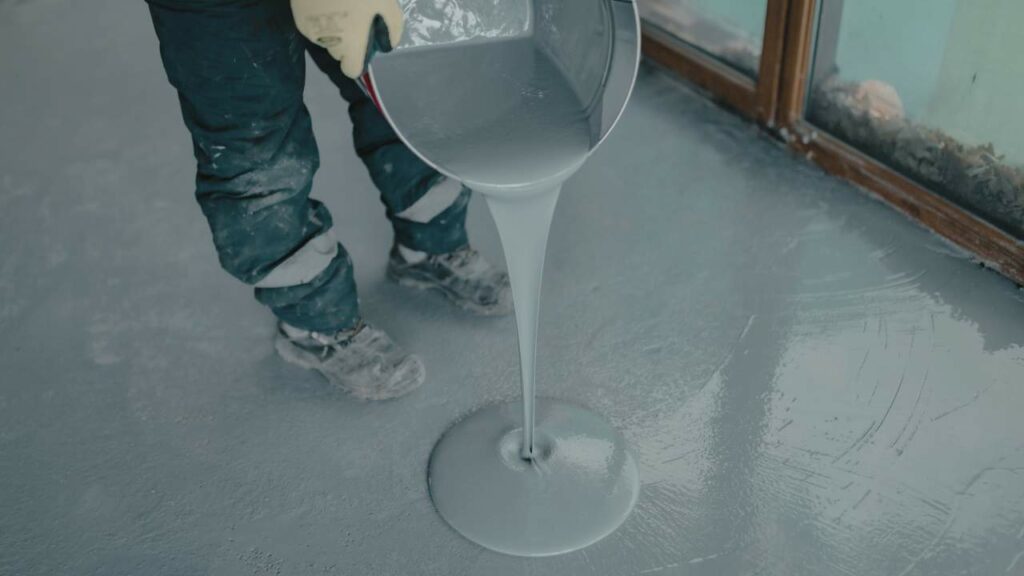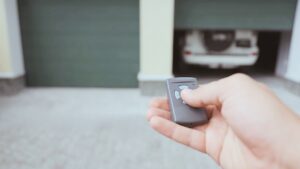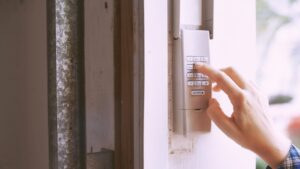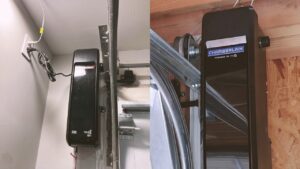Transforming dull and deteriorating garage floors into resilient, visually appealing spaces can significantly improve the functionality and aesthetics of any garage.
Garage floor maintenance often takes a backseat in homeowners’ minds. However neglecting this crucial aspect can lead to dire consequences such as cracks, stains, and hazardous conditions.
Choosing the best garage flooring might be difficult because there are so many possibilities, ranging from tiles to matting. However, epoxy flooring is one standout solution that continues to gain popularity for its unmatched advantages.
The benefits of epoxy garage floors include seamless application, exceptional durability, stain resistance, and vast design possibilities. Thus making it an ideal choice for homeowners seeking a lasting and visually stunning garage floor solution.
What is Epoxy Floor Coating?
Epoxy garage floor coating is a type of surface coating comprising two main components: epoxide resin and polyamine hardener. These components are mixed together to undergo a chemical reaction known as curing.
During curing, the liquid epoxy mixture transforms into a solid, creating a hard and durable surface that can withstand heavy vehicles, chemical spills, and abrasion. This makes epoxy ideal for garage floors through its long-lasting protection and easy maintenance.
Epoxy coatings are usually enhanced with various additives to achieve specific properties, such as improved slip resistance or UV resistance.
Connect With A Garage Expert
Connect with local experts, Compare quotes, Get the best price.
What Are the Benefits of Epoxy Garage Floor Coating?
From its exceptional durability and resistance to its seamless and attractive appearance, epoxy flooring has much to offer. Let’s take a look at some prime benefits offered by epoxy flooring.
Best for Covering Cracks
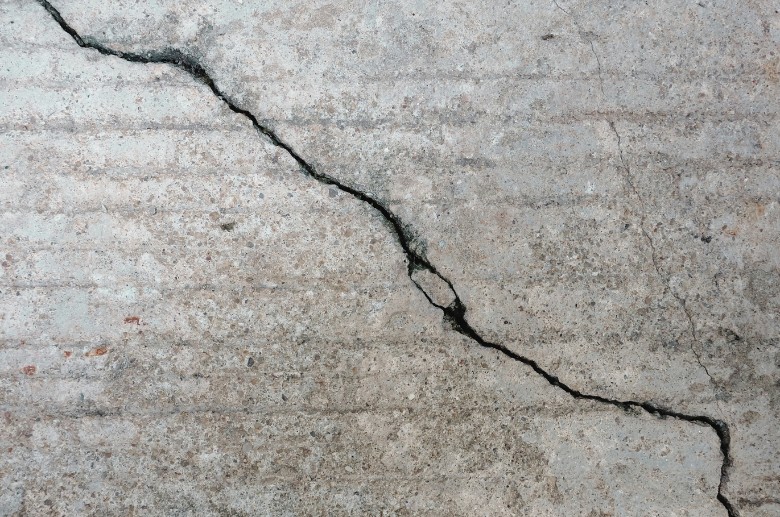
One of the notable benefits of epoxy garage flooring is its ability to cover and hide cracks in the underlying concrete surface effectively. Epoxy coatings create a seamless and smooth surface, making cracks and imperfections virtually invisible.
Improves Aesthetics
Epoxy flooring has a wide range of color options, allowing homeowners to create a floor that complements their decor and style.
The high gloss finish of epoxy floors significantly improves light reflectivity, increasing brightness in the space by up to 200%. This enhances visibility and safety, making epoxy flooring ideal for homeowners who want well-lit and visually appealing garages.
Highly Resistant to Elements
Epoxy flooring is highly durable and suitable for various environments owing to its exceptional resistance to various elements, including water, chemicals, shocks, and heat.
They can withstand temperatures from 75 to 300 degrees Fahrenheit, making epoxy flooring ideal for indoor and outdoor applications.
Homeowners who have installed epoxy floors in their garages don’t need to worry about water spills, chemical splashes, heavy impacts, or temperature fluctuations.
This resilience makes epoxy flooring a reliable choice for garages, industrial settings, commercial spaces, and other areas where resistance to environmental factors is crucial for the longevity and functionality of the floor.
Built to Last
Epoxy flooring offers exceptional strength and durability that can withstand various forms of wear and tear. Its resistance to impacts, chemicals, and abrasion makes it a long-lasting flooring for your garage.
Unlike other flooring options, epoxy can withstand the demands of daily use, making it a reliable choice for commercial and industrial spaces and high-activity areas like garages.
Easy to Clean
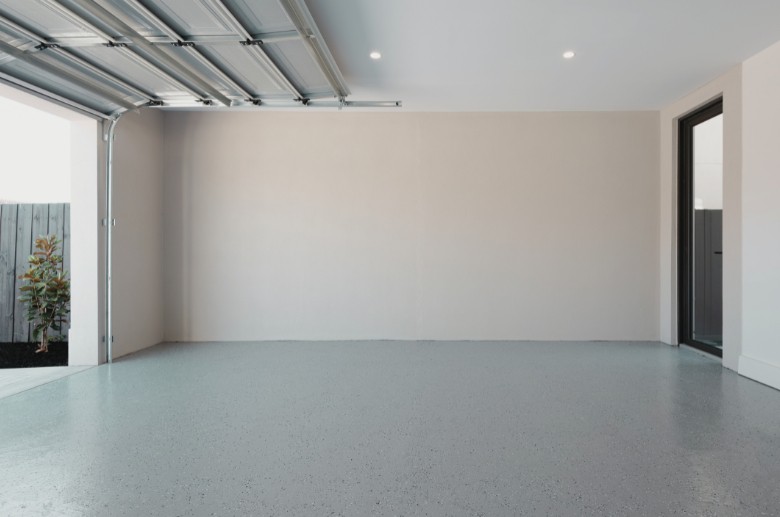
Epoxy flooring is easy to clean and maintain thanks to its protective qualities against stains, moisture, and damage. Its seamless and non-porous surface prevents liquids, such as water, oil, or chemicals, from seeping into the floor. You can easily clean up spills without worrying about stains.
Connect With A Garage Expert
Connect with local experts, Compare quotes, Get the best price.
Quick and Easy Coating Options
Epoxy flooring offers quick and easy coating options, making it a convenient choice for various flooring projects. Compared to other types of flooring, epoxy is relatively easy to install and can be applied directly to concrete and other floor types. Here’s a quick DIY video on how to install an epoxy floor on concrete.
Environmentally Friendly
Traditional flooring options usually emit harmful volatile organic compounds (VOCs) during installation and use. Epoxy coatings, on the other hand, are low in VOCs. That means epoxy garage floors have minimal impact on indoor air quality and the environment.
Increases Home Value
The durability and long-lasting nature of epoxy floors make them an attractive feature for potential buyers. It reassures potential buyers that they won’t need to worry about replacing or repairing the flooring in the near future.
Well-maintained and modern flooring, such as epoxy, can increase a property’s value by 8%, making it a wise investment for homeowners looking to enhance their home’s resale potential.
Budget Friendly
One remarkable benefit of epoxy flooring is its budget-friendly nature compared to other flooring options like wood flooring and vinyl. The cost of epoxy flooring installation, including materials and labor, generally ranges from $3 to $7 per square foot, making it a cost-effective alternative for homeowners seeking a durable and visually appealing flooring solution.
Compared to that, wood and vinyl flooring can be considerably more expensive, with installation costs ranging from $6 to $10 per square foot and even higher.
Beyond the initial installation expense, epoxy flooring offers long-term savings through reduced maintenance and repair costs. Unlike wood or vinyl floors, which may require frequent refinishing, resealing, or replacement due to wear and tear, epoxy floors boast exceptional durability and resistance to damage.
Disadvantages Of Epoxy Flooring
Despite its exceptional durability and visual appeal, epoxy does have certain limitations that warrant consideration.
Not Resistant to Everything
While epoxy flooring boasts impressive chemical resistance, it is essential to note that it is not impervious to all substances. It can withstand everyday garage spills like oil, gasoline, and water. However, harsher chemicals such as strong acids like hydrochloric acid and certain solvents can damage the epoxy surface.
Cheaper Epoxy Coatings are Apparent in the Market
One significant disadvantage of epoxy flooring lies in the presence of cheaper, low-quality coatings available in the market. While these cheaper options seem appealing at first, they often need to improve the quality of resins and hardeners used in the formulation.
Consequently, the resulting epoxy floor may lack the robustness and durability expected from a high-grade coating. Therefore, ensuring you get the right epoxy garage floor is essential.
Hot Tires Can Ruin the Coating
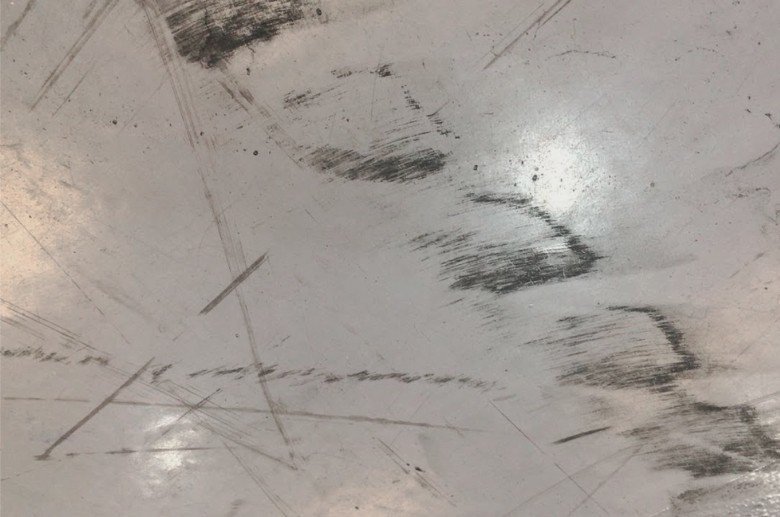
Epoxy flooring is vulnerable to damage caused by hot tires from vehicles. When parked, the heat generated by the tires can soften the epoxy coating, making it susceptible to deformation.
As the tires cool down, they may cause the epoxy to peel off, leading to an unsightly and compromised garage floor surface. However, this problem is more common in cheaper epoxy floors that compromise the quality of the resins and hardeners used in their formulation.
U.V. Light Can Cause the Coating to Turn Yellow
Epoxy floors are susceptible to discoloration when exposed to UV light for more extended periods. The vibrant and glossy appearance of epoxy may gradually fade or turn yellow as the epoxy resin’s bonds break down under the influence of UV rays.
You can prevent this discoloration by keeping blinds on the windows to keep the UV light from reaching the floor.
Slippery When Wet
Epoxy flooring becomes slippery when wet, presenting a safety risk to occupants. The smooth and glossy surface of epoxy can become hazardous, especially in areas prone to spills or water exposure.
A practical solution is to add a slip-resistant aggregate to the top layer of the epoxy floor.
Difficult to Remove
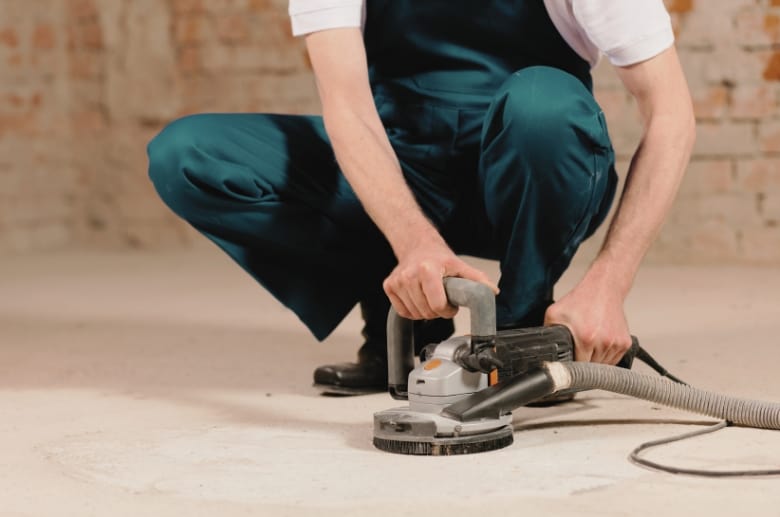
Epoxy floors are challenging to remove. Once the epoxy has bonded with the concrete surface, it forms an exceptionally strong and durable coating. To remove epoxy floors, you’ll need specialized equipment and expertise.
This can be a disadvantage for homeowners who decide to change the flooring.
Connect With A Garage Expert
Connect with local experts, Compare quotes, Get the best price.
Temporary Odor
One temporary but notable disadvantage of epoxy flooring is the strong odor it emits during the application and curing process. As epoxy is applied and hardened, it releases fumes that can create a pungent smell in the immediate surroundings.
While this odor gradually dissipates as the floor cures, it can be unpleasant and bothersome during installation.
How Much Would It Cost to Fully Coat the Garage Floor with Epoxy?
The cost of fully coating a garage floor with epoxy can vary depending on several factors. On average, for a 2-car garage floor, homeowners can expect to spend between $1,320 and $3,080, with the majority of them paying around $1,711 when opting for professional installation.
The size of the garage also plays a significant role in determining the overall cost. For instance, coating an average 12’x22′ one-car garage covering approximately 264 square feet would cost anywhere from $792 to $1,848.
On the other hand, for a 20’x22′ two-car garage with a surface area of 440 square feet, the epoxy flooring cost would range from $1,320 to $3,080.
Final Thoughts
Epoxy garage floors offer many benefits that can elevate the functionality and aesthetics of any garage. From its exceptional durability, chemical resistance, and seamless application to easy-to-clean properties, epoxy is a reliable and visually stunning choice.
As we’ve explored both the benefits and the disadvantages of epoxy flooring, we encourage homeowners to consider this option when revamping their garage floors seriously.
With its long-lasting performance and cost-effective nature, epoxy flooring offers an intelligent investment that promises years of reliable use and reduced maintenance.

